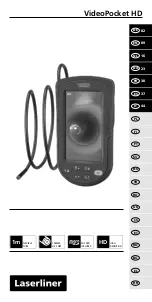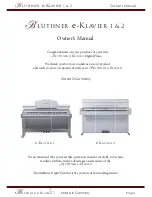
3.Operation
3-1 General cautions and preparation prior to operation
1)This instrument should be used at an ambient temperature of 0
to 50℃ and a humidity of 80% or less, paying special attention
to dew condensation.
2)It must be used at a location free of dust.
3)Care should be taken to prevent vibration and shock.
4)Noise
(a)Electric circuit
Because it is difficult for such a small instrument as this
to accommodate a perfect noise prevention circuit, use a surge
absorbing circuit such as an external line filter or varistor
to prevent excess surge when the instrument is used at a
location where lightening frequently occurs or magnetic
switches are likely to be actuated on the same power line.
(b)Shielding
If noise causes a problem, connect the E terminal(11) for AC,
or the power 0V terminal(17) for DC to the ground or equipment
grounding terminal.
If space induction causes a problem, it can be prevented by
covering the instrument case with a metal plate.
3-2 Mounting
1)Panel mounting
Make a rectangular cutout as shown in Fig.1, insert the
instrument in the panel as shown in Fig.2, and then fully push
the instrument into the panel.
(It is recommended that panel thickness be from 0.8 to 5mm)
3-3 Connector connection
Insert the attached input/output connector in the rear of the
panel meter. The connector is provided with an incorrect
insertion prevention key, so it is easy to make sure that it is
not connected upside down. After insertion, tighten the both
sides with the attached screws.
1)Power connection
For AC, connect power to terminals 16 to 18, operate the
instrument at a power supply voltage of 90 to 132V or 180 to
264V.
Because the meter also has no fuse, install a fuse (for 0.2A)
outside of the meter, if necessary.
For DC, connect power to terminals 17 to 18,
Power variation in this case is 5V DC±5% or 24V DC±20%
(Because this instrument is not provided with a power supply
switch, it starts operating when power is supplied.)
2)Decimal-point setting
The decimal point can be freely set to the desired position when
the following connector terminals are shorted. However, because
the decimal point is not set prior to shipment, it must be set
at the appropriate position by the customer.
3)Input connection
Connect an input signal (DC voltage or DC current to terminals
1 to 3. Use a 2-core shielded cable and connect the shield to
the input LO side at one point near the signal source.
●Connector Connection Diagram
4)Display hold and external start
Displayed value is hold to the value just after the hold(No.8)
and COMMON(NO.7) terminals are shorted. In addition,
measurement starts when these terminals are opened at the
necessary timing. {Positive pulse from 0V to +5V for more than
400ms, or contact signal(open)}
The minimum time required for one measurement is about 400 ms.
In addition, as the input(LO) and COMMON(7) terminals are
connected and not DC-isolated, use a mechanical contact signal
such as a relay or switch for control as much as possible. When
performing control by TTL. Or transistor, and such an external
circuit in Fig.3. (This circuit is absolutely necessary for
isolation when the input is floated.)
5)COMMON terminal
This is the digital circuit COMMON terminal(No.7) which is
internally connected to the LO terminal. However, do not connect
the digital circuit to the LO terminal to prevent measurement
error.
4.Maintenance
4-1 Caution for maintenance
The storage temperature of this instrument shouid be between
-10℃ and +70℃ at a relative humidity of 60% or less.
As the instrument case and bezel are mode of molded Plastic,
do not use a volatile liquid such as thinner to clean them.
5.Warranty
This meter is warranted for a period of one year from date of
delivery. Any defect which occurs in this period and is
undoubtedly caused by Watanabe’s faults will be remedied free
of charge.
This warranty dose not apply to the meter showing abuse or damage
which has been altered or repaired by others except as authorized
by Watanabe Electric Industry.
6.After-sale Service
This meter is delivered after being manufactured, tested and
inspected under strict quality control.
However, if any problem does occur, contact your nearest Watanabe
sales agent giving as much information on problem as possible.
Decimal point
at 10 digit
3
Nos.connected
Connector Terminal
10
10
10
1
2
3
point lit
Decimal
14-7
13-7
12-7
Decimal point
at 10 digit
2
at 10 digit
1
Decimal point
DC power supply
0V
+
HI
LO
Input
C
O
M
M
O
N
S
t
a
r
t
/
H
o
l
d
10
10
10
3
1
2
supply
Power
AC
Decimal
point
Note:Input LO and COMMON have the same potential.
□ marks indicate vacant terminals,but do not use them
as junction terminals.
18
17
11 12
14
13
10
9
8
7
6
4
1
2
3
5
15 16
■ □ ■ □ □ □ ■ ■ □ □ □ ■ ■ ■ □ ■ ■ ■
Sink current 0.5mA
Panel Meter
LO(3)
HOLD(8)
COM(7)
Fig.3
Photo- coupler
Hold or Start
MODEL AP-101 Series UR-32485k (4/4)
Connector
setscrews
Input/output
connection
Mounting panel
Mainframe
-
0
+
0
.
6
4
5
92 -0
+0.8
Fig.1
Fig.2
Hole for front
bezel removal
Mounting
hook
WATANABE ELECTRIC INDUSTRY CO., LTD.
6-16-19, Jingumae, Shibuya-ku, Tokyo 150-0001, Japan
Phone: (81)3-3400-6140
Homepage http://en.watanabe-electric.co.jp/
ASAHI KEIKI DIVISION
WATANABE ELECTRIC INDUSTRY CO., LTD.
6-16-19, Jingumae, Shibuya-ku, Tokyo 150-0001, Japan
Phone: (81)3-3400-6141
Homepage http://www.watanabe-electric.co.jp/en/




















